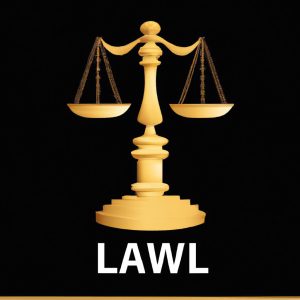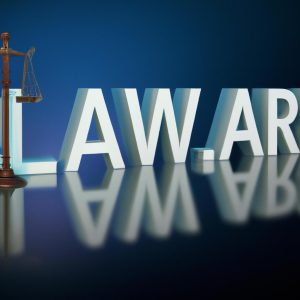In the intricate tapestry of estate administration, the final distribution of assets stands as the ultimate culmination of a meticulously crafted estate plan. As experienced lawyers at Morgan Legal Group in the bustling heart of New York City, we specialize in navigating the complex terrain of probate, elder law, Wills, and trusts to ensure the seamless transfer of our clients’ wealth and property to their chosen heirs and beneficiaries. Join us as we delve into the crucial process of final distribution of estate assets, where legal expertise meets the heartfelt desires of our valued clientele.
Understanding the Legal Process of Final Estate Distribution
When it comes to the final distribution of estate assets, there are several crucial steps that must be followed to ensure that the wishes of the deceased are carried out in a legal and orderly manner. is essential for executors, beneficiaries, and heirs to navigate through the complexities of probate and estate administration.
One of the key aspects of final estate distribution is identifying and valuing all assets of the estate. This includes real estate, personal property, investments, bank accounts, and any other assets owned by the deceased. Once the assets have been identified and valued, they must be distributed according to the terms of the Will or trust. It is important to work with an experienced estate planning attorney to ensure that the final distribution of estate assets is done legally and in compliance with all applicable laws and regulations.
Key Considerations for Executors and Beneficiaries in Asset Allocation
When it comes to the final distribution of estate assets, there are several key considerations that both executors and beneficiaries should keep in mind to ensure a smooth and fair process. One important factor to take into account is the type of assets that make up the estate. Whether it’s real estate, investments, or personal belongings, each asset may have different tax implications and requirements for distribution. Executors must carefully evaluate each asset and create a plan that adheres to the terms of the will or trust.
Another crucial consideration is the relationship between the executor and the beneficiaries. Open communication and transparency are essential to avoid any misunderstandings or disputes during the asset allocation process. Executors should provide regular updates to beneficiaries regarding the status of the estate and any decisions that may impact them. Additionally, beneficiaries should be prepared to ask questions and seek clarification on any aspects of the distribution that they do not understand.
Maximizing Efficiency and Minimizing Disputes in Estate Asset Distribution
When it comes to the final distribution of estate assets, it is crucial to follow a strategic approach to ensure efficiency and minimize disputes among beneficiaries. Utilizing a comprehensive plan and effective communication can help streamline the process and avoid potential conflicts.
- Transparent Communication: Keeping all involved parties informed and updated throughout the distribution process can prevent misunderstandings and resentment.
- Clear Documentation: Maintaining detailed records of all assets, beneficiaries, and distribution decisions is essential for a smooth and organized final distribution.
| Asset Type | Beneficiary | Distribution Status |
|---|---|---|
| Real Estate | John Smith | In Process |
| Investments | Alice Johnson | Completed |
By adhering to these principles and maintaining a diligent approach to estate asset distribution, conflicts can be minimized, and the process can be completed efficiently. At Morgan Legal Group, we specialize in estate planning and probate services to help clients navigate the complexities of asset distribution with ease and confidence.
Expert Guidance and Best Practices for Ensuring Fair and Timely Distribution
Creating a fair and timely distribution plan for estate assets is crucial in ensuring that the wishes of the deceased are respected and that beneficiaries receive their rightful share. One key best practice is to work closely with an experienced estate planning attorney who can provide expert guidance throughout the process. By enlisting the help of a legal professional, you can navigate complex probate laws and ensure that the distribution of assets is handled in accordance with the law.
When it comes to finalizing the distribution of estate assets, it is important to prioritize transparency and communication among all parties involved. Providing regular updates to beneficiaries and keeping them informed of the progress can help prevent any potential disputes or misunderstandings. Additionally, documenting all transactions and decisions related to the distribution of assets can serve as a safeguard in case of any legal challenges. By following these best practices and seeking guidance from a knowledgeable attorney, you can streamline the distribution process and mitigate any potential complications that may arise.
| Expert Tip: | Consult with an estate planning attorney to ensure compliance with probate laws |
|---|---|
| Expert Tip: | Maintain open communication with beneficiaries to prevent disputes |
| Expert Tip: | Document all transactions and decisions related to asset distribution |
Q&A
Q: What is the final distribution of estate assets?
A: The final distribution of estate assets refers to the process of dividing and distributing the remaining assets of a deceased individual’s estate to their beneficiaries or heirs.
Q: When does the final distribution of estate assets occur?
A: The final distribution of estate assets typically occurs after all debts, taxes, and other expenses have been paid, and the inventory of the deceased’s assets has been completed.
Q: Who is responsible for overseeing the final distribution of estate assets?
A: The executor or personal representative of the deceased’s estate is responsible for overseeing the final distribution of estate assets.
Q: What happens if a beneficiary disputes the final distribution of estate assets?
A: If a beneficiary disputes the final distribution of estate assets, they may have the option to challenge the distribution through the probate court system.
Q: Are there any tax implications associated with the final distribution of estate assets?
A: Yes, there may be tax implications associated with the final distribution of estate assets, including income taxes, estate taxes, and inheritance taxes.
Q: How can beneficiaries ensure a smooth final distribution of estate assets?
A: Beneficiaries can ensure a smooth final distribution of estate assets by working closely with the executor or personal representative, keeping open lines of communication, and seeking legal guidance if necessary.
Insights and Conclusions
As we reach the end of this journey through the final distribution of estate assets, it is important to remember the complexity and sensitivity of this process. The handling of a loved one’s estate requires patience, diligence, and attention to detail. By following the proper legal procedures and seeking guidance from professionals when needed, we can ensure that the assets are distributed fairly and in accordance with the wishes of the deceased. May this article serve as a guiding light as you navigate the intricate path of final distribution, and may it bring clarity and peace to a potentially challenging time. Thank you for joining us on this exploration of estate assets, and may your own journey toward resolution be met with grace and understanding.










